Russian plane crash: Waiting for that 0.1%
Russian plane crash: Waiting for that 0.1%
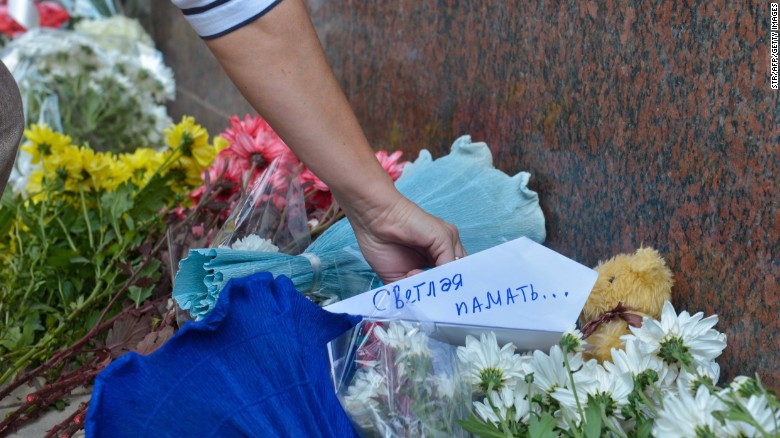
24 photos: Russian plane crashes in Egypt
People place flowers and messages in front of the Russian Embassy in Cairo on November 1.
Hide Caption
13 of 24
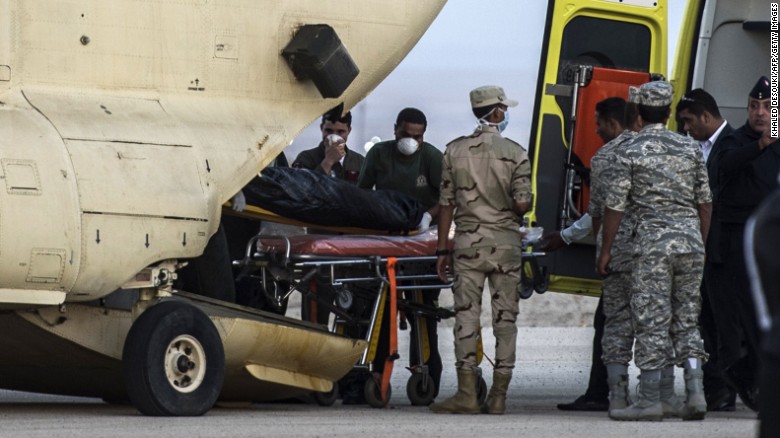
24 photos: Russian plane crashes in Egypt
Egyptian paramedics load the bodies of victims into a military plane at a military air base by the Suez Canal on Saturday, October 31.
Hide Caption
14 of 24

24 photos: Russian plane crashes in Egypt
Egyptian Prime Minister Sherif Ismail, third from right, visits the site of the plane crash with military and government officials on October 31.
Hide Caption
15 of 24
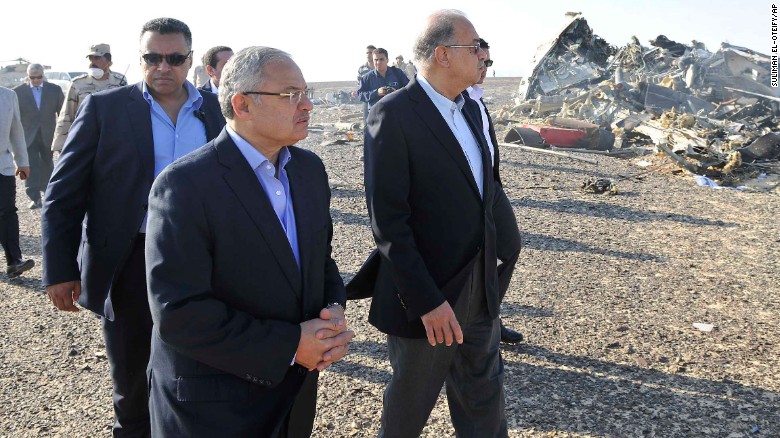
24 photos: Russian plane crashes in Egypt
Ismail, center, and other officials visit the site of the plane crash on October 31.
Hide Caption
16 of 24
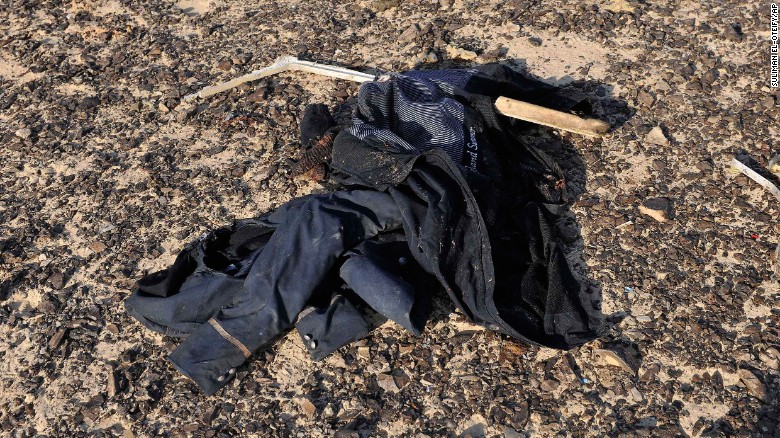
24 photos: Russian plane crashes in Egypt
An item of clothing lies at the site where the plane crashed on October 31.
Hide Caption
17 of 24
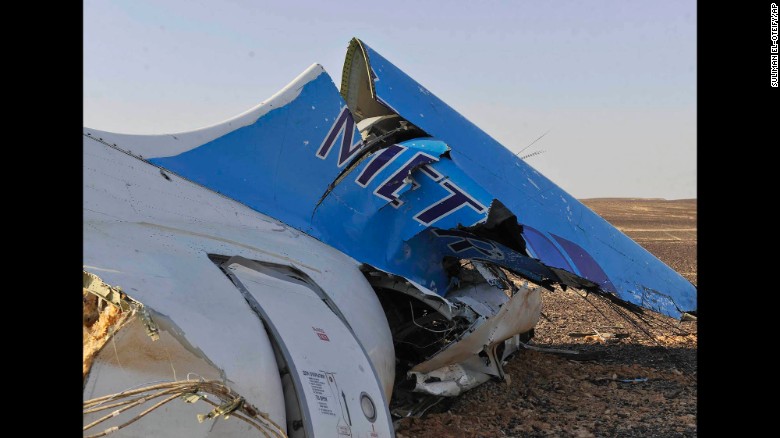
24 photos: Russian plane crashes in Egypt
The tail of the jet sits in a field on October 31.
Hide Caption
18 of 24

24 photos: Russian plane crashes in Egypt
Villagers watch an ambulance as it drives to unload bodies on October 31.
Hide Caption
19 of 24

24 photos: Russian plane crashes in Egypt
People light candles and leave flowers at the Russian Embassy in Kiev, Ukraine, on October 31.
Hide Caption
20 of 24

24 photos: Russian plane crashes in Egypt
A relative reacts to news at Pulkovo International Airport on October 31.
Hide Caption
21 of 24
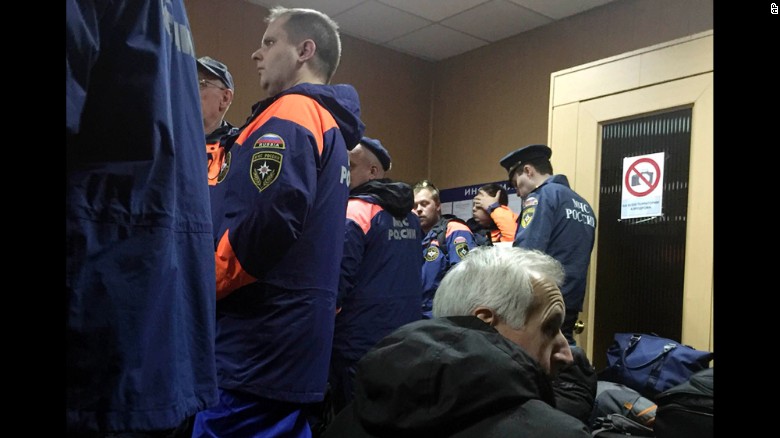
24 photos: Russian plane crashes in Egypt
Employees with the Russian Ministry for Emergency Situations wait in Moscow for their flight to Egypt on October 31.
Hide Caption
22 of 24
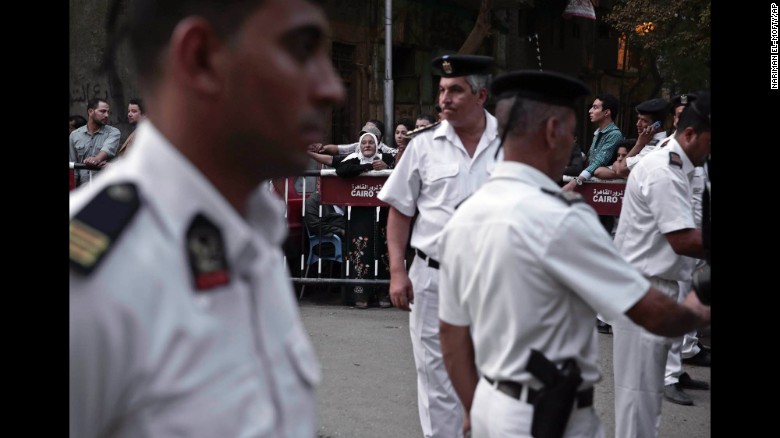
24 photos: Russian plane crashes in Egypt
Journalists and spectators wait for ambulances to arrive at the Zeinhom morgue in Cairo on October 31.
Hide Caption
23 of 24
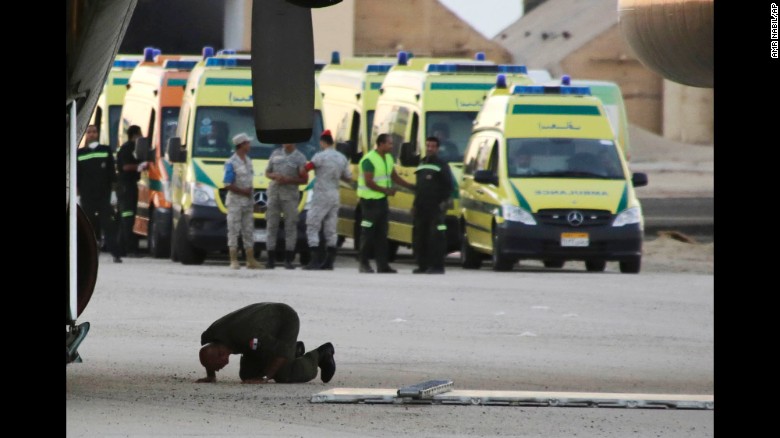
24 photos: Russian plane crashes in Egypt
An Egyptian soldier prays as emergency workers prepare to unload bodies of victims at a military airport north of Suez, Egypt, on October 31.
Hide Caption
24 of 24
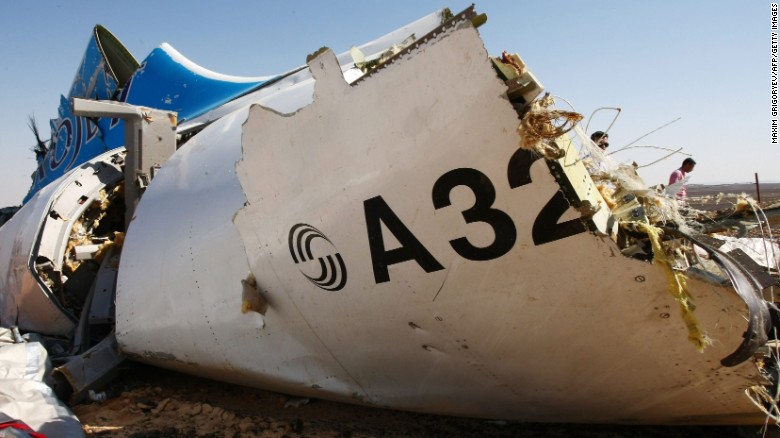
24 photos: Russian plane crashes in Egypt
The wreckage of Metrojet Flight 9268 is seen in this image provided on Tuesday, November 3. International investigators are trying to determine why the Russian airliner crashed in Egypt's Sinai Peninsula, killing 224 people on Saturday, October 31.
Hide Caption
1 of 24
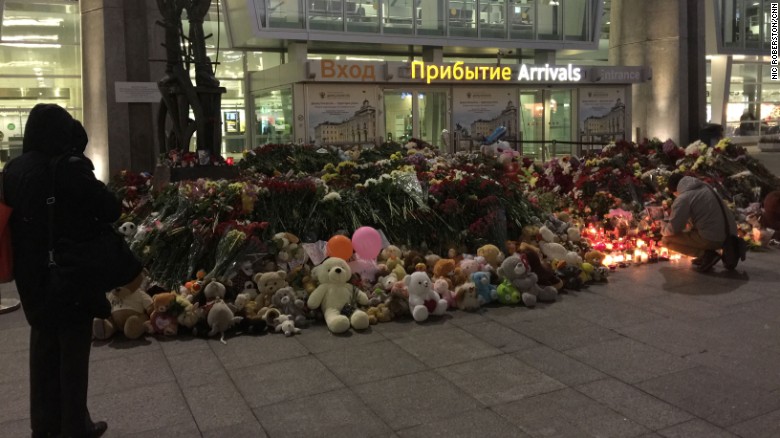
24 photos: Russian plane crashes in Egypt
People visit a makeshift memorial at the airport in St. Petersburg, Russia, on November 3.
Hide Caption
2 of 24

24 photos: Russian plane crashes in Egypt
Trucks in St. Petersburg carry victims' bodies on Monday, November 2.
Hide Caption
3 of 24
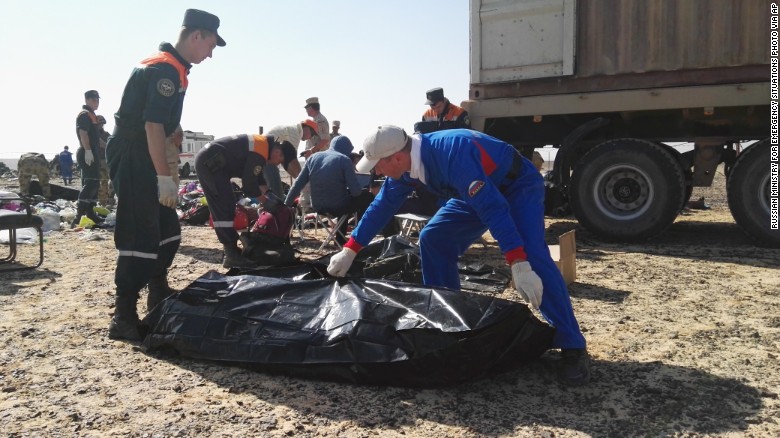
24 photos: Russian plane crashes in Egypt
Russian emergency personnel collect personal belongings of victims at the crash site in Hassana, Egypt, on November 2.
Hide Caption
4 of 24
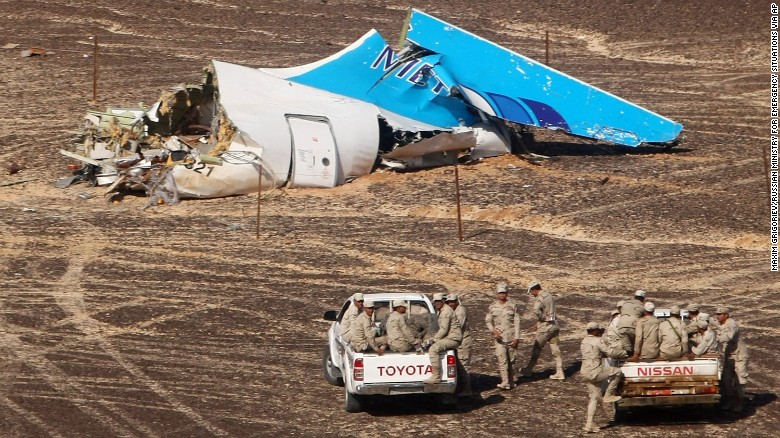
24 photos: Russian plane crashes in Egypt
Egyptian military personnel stand near the tail of the jet in Hassana on Sunday, November 1.
Hide Caption
5 of 24

24 photos: Russian plane crashes in Egypt
A piece of the engine sits on the ground at the crash site on November 1.
Hide Caption
6 of 24
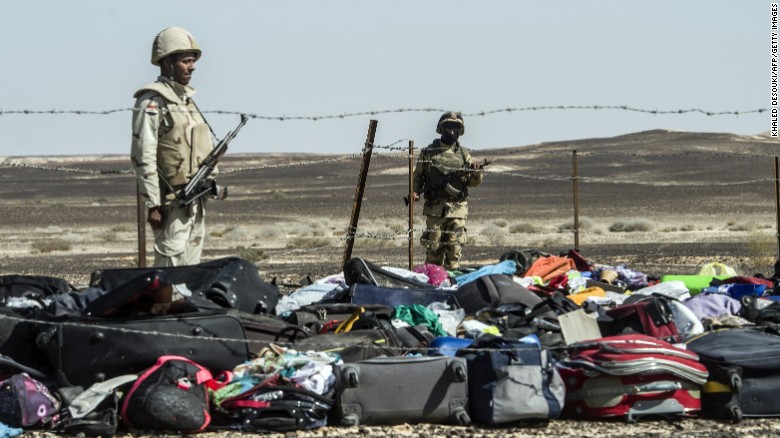
24 photos: Russian plane crashes in Egypt
Egyptian army soldiers guard the luggage and other belongings of passengers piled up at the site of the crash on November 1.
Hide Caption
7 of 24

24 photos: Russian plane crashes in Egypt
Debris belonging to the Russian airliner is shown at the site of the crash on November 1.
Hide Caption
8 of 24
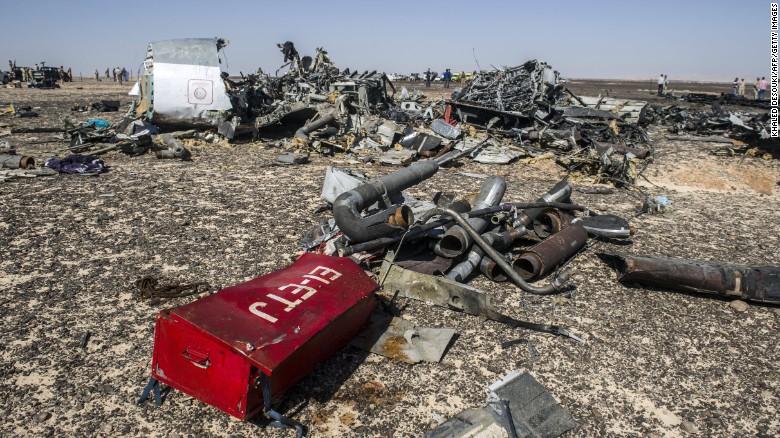
24 photos: Russian plane crashes in Egypt
More debris is shown on November 1. The crash site is in a remote area of a region plagued by a violent Islamic insurgency.
Hide Caption
9 of 24
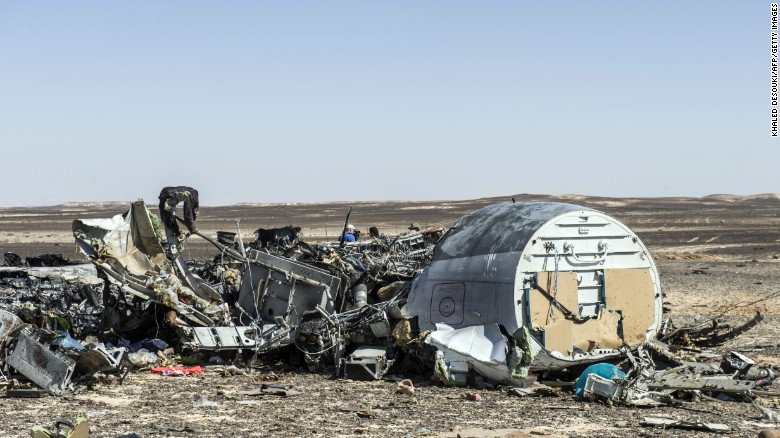
24 photos: Russian plane crashes in Egypt
Debris from the airliner is seen on November 1.
Hide Caption
10 of 24
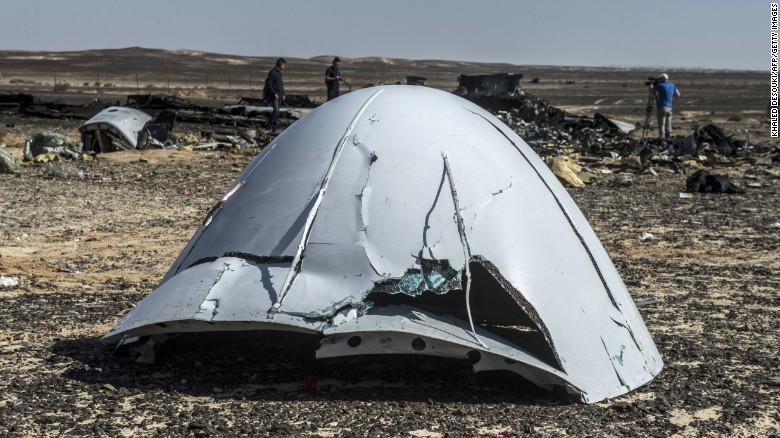
24 photos: Russian plane crashes in Egypt
Debris at the crash site on November 1.
Hide Caption
11 of 24

24 photos: Russian plane crashes in Egypt
Candles, toys, flowers and portraits are left at Pulkovo International Airport outside St. Petersburg on November 1.
Hide Caption
12 of 24

24 photos: Russian plane crashes in Egypt
People place flowers and messages in front of the Russian Embassy in Cairo on November 1.
Hide Caption
13 of 24

24 photos: Russian plane crashes in Egypt
Egyptian paramedics load the bodies of victims into a military plane at a military air base by the Suez Canal on Saturday, October 31.
Hide Caption
14 of 24

24 photos: Russian plane crashes in Egypt
Egyptian Prime Minister Sherif Ismail, third from right, visits the site of the plane crash with military and government officials on October 31.
Hide Caption
15 of 24

24 photos: Russian plane crashes in Egypt
Ismail, center, and other officials visit the site of the plane crash on October 31.
Hide Caption
16 of 24

24 photos: Russian plane crashes in Egypt
An item of clothing lies at the site where the plane crashed on October 31.
Hide Caption
17 of 24

24 photos: Russian plane crashes in Egypt
The tail of the jet sits in a field on October 31.
Hide Caption
18 of 24

24 photos: Russian plane crashes in Egypt
Villagers watch an ambulance as it drives to unload bodies on October 31.
Hide Caption
19 of 24

24 photos: Russian plane crashes in Egypt
People light candles and leave flowers at the Russian Embassy in Kiev, Ukraine, on October 31.
Hide Caption
20 of 24

24 photos: Russian plane crashes in Egypt
A relative reacts to news at Pulkovo International Airport on October 31.
Hide Caption
21 of 24

24 photos: Russian plane crashes in Egypt
Employees with the Russian Ministry for Emergency Situations wait in Moscow for their flight to Egypt on October 31.
Hide Caption
22 of 24

24 photos: Russian plane crashes in Egypt
Journalists and spectators wait for ambulances to arrive at the Zeinhom morgue in Cairo on October 31.
Hide Caption
23 of 24

24 photos: Russian plane crashes in Egypt
An Egyptian soldier prays as emergency workers prepare to unload bodies of victims at a military airport north of Suez, Egypt, on October 31.
Hide Caption
24 of 24

24 photos: Russian plane crashes in Egypt
The wreckage of Metrojet Flight 9268 is seen in this image provided on Tuesday, November 3. International investigators are trying to determine why the Russian airliner crashed in Egypt's Sinai Peninsula, killing 224 people on Saturday, October 31.
Hide Caption
1 of 24

24 photos: Russian plane crashes in Egypt
People visit a makeshift memorial at the airport in St. Petersburg, Russia, on November 3.
Hide Caption
2 of 24

24 photos: Russian plane crashes in Egypt
Trucks in St. Petersburg carry victims' bodies on Monday, November 2.
Hide Caption
3 of 24

24 photos: Russian plane crashes in Egypt
Russian emergency personnel collect personal belongings of victims at the crash site in Hassana, Egypt, on November 2.
Hide Caption
4 of 24

24 photos: Russian plane crashes in Egypt
Egyptian military personnel stand near the tail of the jet in Hassana on Sunday, November 1.
Hide Caption
5 of 24

24 photos: Russian plane crashes in Egypt
A piece of the engine sits on the ground at the crash site on November 1.
Hide Caption
6 of 24

24 photos: Russian plane crashes in Egypt
Egyptian army soldiers guard the luggage and other belongings of passengers piled up at the site of the crash on November 1.
Hide Caption
7 of 24

24 photos: Russian plane crashes in Egypt
Debris belonging to the Russian airliner is shown at the site of the crash on November 1.
Hide Caption
8 of 24

24 photos: Russian plane crashes in Egypt
More debris is shown on November 1. The crash site is in a remote area of a region plagued by a violent Islamic insurgency.
Hide Caption
9 of 24

24 photos: Russian plane crashes in Egypt
Debris from the airliner is seen on November 1.
Hide Caption
10 of 24

24 photos: Russian plane crashes in Egypt
Debris at the crash site on November 1.
Hide Caption
11 of 24

24 photos: Russian plane crashes in Egypt
Candles, toys, flowers and portraits are left at Pulkovo International Airport outside St. Petersburg on November 1.
Hide Caption
12 of 24
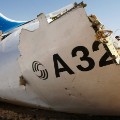


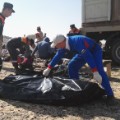
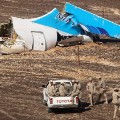
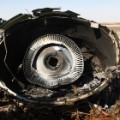
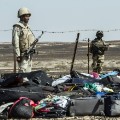
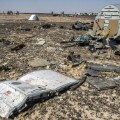
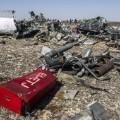
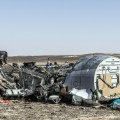
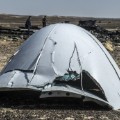


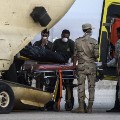









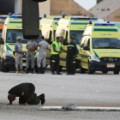
Story highlights
- There is growing consensus that a Russian plane was downed by a bomb placed by affiliates of ISIS
- Juliette Kayyem: Reluctance of officials to say they are 100% sure has to do with long-term tactics
Juliette Kayyem, a CNN national security analyst, is a professor at Harvard's Kennedy School of Government, a former assistant secretary in the U.S. Department of Homeland Security and founder of Kayyem Solutions, a security consulting firm. She also is the host of the "Security Mom" podcast. The opinions expressed in this commentary are hers.
(CNN)More than a week after the flight from Sharm el-Sheikh to St. Petersburg exploded in the air, killing all 224 on board, there is a growing consensus by U.S. and British officials that the Russian Metrojet Airbus A321 was downed by a bomb placed by affiliates of ISIS. One intelligence official said it was "99.9% certain" that a bomb downed the plane.
Adam Schiff, the leading Democrat on the House Intelligence Committee, had a similar just-about-there statement Saturday: "I think there's a growing body of intelligence and evidence that this was a bomb -- still not conclusive -- but a growing body of evidence."
Why the reluctance to go that final 0.1%?
Why did British Prime Minister David Cameron go from "more likely than not" mid-week in such an aggressive way that he seemed more American than British, only to recede by week's end, tempered by U.S. President Barack Obama's line that a bomb was just a possibility?

Juliette Kayyem
The explanation may reside in the intelligence wars between enemies and allies. Animating the drama of the tragedy itself is something much more covert and, in many ways, cuts to the core of any wartime strategy: Winning the battle isn't the same as winning the war.
We know now from numerous reports that Western intelligence officials picked up post-crash "chatter" by ISIS that it was responsible for the flight explosion. In most instances, such boasting means almost nothing standing alone.
ISIS, just like al Qaeda, will take responsibility for hurricanes and earthquakes if it can. Its major recruitment tool is, after all, looking like it is both tough and successful. Nothing says "we're winning" for ISIS than a victory lap over the bodies of innocent civilians.
But this chatter seemed different, different enough for nations to act on it without actually concluding -- with certainty -- that a terrorist attack had indeed occurred.
Today, the fight against ISIS will be long-term, involving multiple countries with a common strategic interest in defeating the terrorist organization. Each country -- in particular the U.S., Britain, Russia and Israel -- will also have its own interests in strong intelligence efforts in countries as politically far-ranging as Yemen, Jordan, Syria and Egypt.
And each will use its own sources and methods to infiltrate the group, garner information and track communications all in the hopes of defeating the enemy. The only way it works, though, is if the enemy doesn't know how it's being followed.
The result: a lot of equivocating, followed by near certainty. No leader wanted to disclose that the post-crash chatter was picked up, how it was collected, and what sources and methods were used -- including possibly human assets -- to get the information. The airplane blowing up is only a single battle; the war continues. And to fight the war, ISIS cannot know the extent to which it is being followed.
This is a real tension in the intelligence wars and why physical proof is so much less complicated than all this James Bond stuff. Simply put, with no definitive physical evidence proving a bomb, and (for now) inconclusive noise from transcripts of the plane's "black boxes," the chatter is the basis of all this near certainty.
And now that it knows that these signals were picked up, the terrorist organization has invaluable knowledge about Western efforts against it. ISIS is sophisticated enough to have now closed off those communications networks, which may have taken anti-ISIS intelligence agencies years to penetrate.
It is now being reported that Israel supplied that information, though it is not confirming this. Nor should it. These leaks are damaging to Israel, as well as the U.S. and all anti-ISIS nations, and it could be that the leaders of the attack are from a nation allied with Israel.
In addition, Israel has bilateral relations with Egypt based on common goals, and it probably will not be keen to disclose how much surveillance and espionage it is performing in Egypt. What we do know is that access to the group through whatever means Israel was using is now vulnerable.
There is still one alternative explanation for the ISIS boasts, and one that suggests why intelligence assessments alone -- absent physical proof like bomb materials -- are never as conclusive as we want them to be.
In Cold War days, intelligence agents often used false information to test whether they were in fact being followed; they would say that there was going to be a meeting at some specific place and time, and then wait and see whether enemy agents showed up. Agents would use what was called "black propaganda," leaking false information to set their enemies on a wayward course and expose the spying in the process.
This is why intelligence professionals don't often solely rely on chatter, since it can be so easily manipulated. And why the search for physical clues is so essential.
Waiting for that extra 0.1% does not come easily in a world where we want answers immediately. The stakes are too high, however, to get it wrong.
It appears now that the most likely explanation for a week where certainty is coming slowly has less to do with incompetence or government recalcitrance and everything to do with the road ahead.
If ISIS is responsible for the downing of the plane, then perhaps the short-term loss of intelligence access is worth the gain of exposing its murders. But the war against ISIS will continue well past events this week and, in that sense, we may have taken a few steps back.
